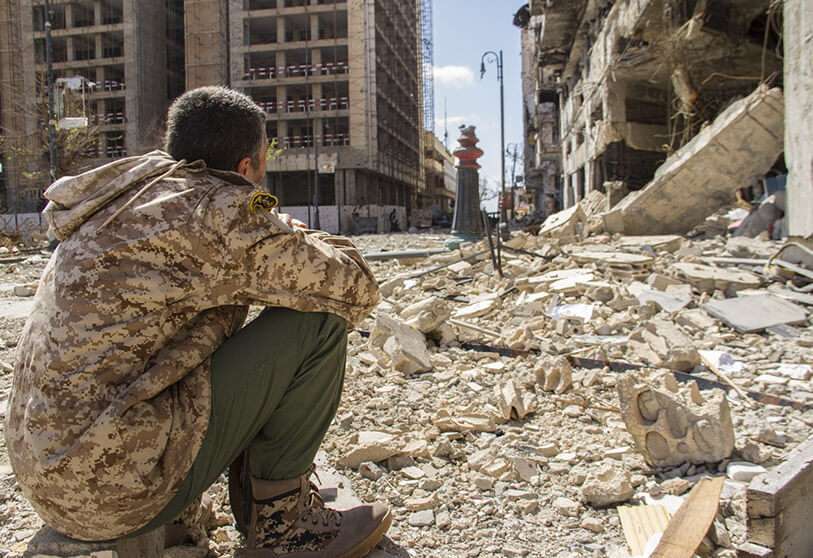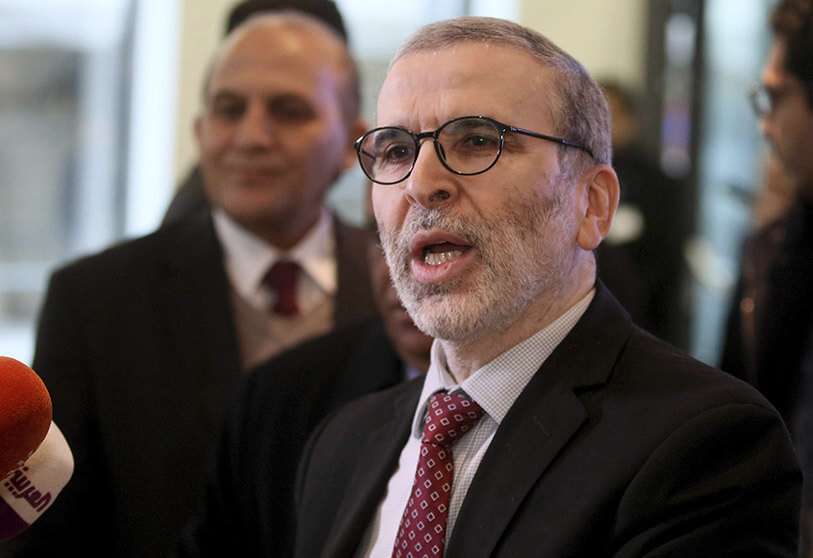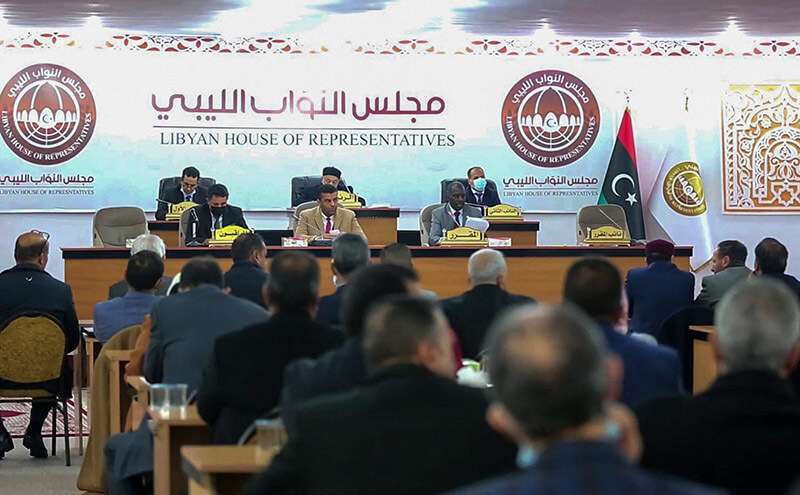Dbeibé replaces the chairman of Libya's main oil company

Libya's National Unity Government decided on Tuesday to replace the president of the National Oil Corp (NOC), the official entity that runs the country's oil and gas sector. Mustafa Sanalla will be replaced by Farhat Bengdara, who will inherit the leadership of a sector hard hit by the civil war ravaging the North African nation, and which is currently the victim of the open political confrontation between Fathi Bashagha and Abdul Hamid Dbeibé.
Sanalla would have to leave a position he has held since 2014, after eight years in which he has had to maintain a complex balance between the various factions that have fought for control of the country. His replacement, Bengdara, is an old hand in Libyan politics, having served as governor of the Central Bank between 2006 and 2011, leaving to join the anti-Gaddafi camp. A native of eastern Libya, he is seen by many as an ally of Marshal Khalifa Haftar, and will now have to try to bring order to the chaos in Libya's energy sector.

Libya has been in civil war since 2011, following the armed revolt against Muammar al-Gaddafi in the context of the Arab Spring. Although armed clashes have been intermittent, no solution has been found in 11 years, and since 2014 the country has been de facto divided between the west (around the Tripolitanian region) and the east (in Cyrenaica), with two parallel governments competing for control of the state. At the same time, oil revenues, as well as control of Libya's Central Bank, have been the main spoils of war contested by the different sides, severely affecting what was once one of the world's leading crude oil exporters.
Between 2014 and 2020, the eastern forces, the so-called Libyan National Army (LNA), led by Marshal Khalifa Haftar, clashed with the internationally recognised Tripolitanian Government of National Accord, led by Fayez al-Sarraj. Then, after Haftar failed in his attempts to conquer Tripoli in the face of Turkish military intervention, both sides agreed to a 'permanent' ceasefire, kick-starting a process that was to conclude in a peace agreement. Dbeibé was elected by the parties as Prime Minister of a Government of National Unity, based in Tripoli, and it was agreed that presidential and parliamentary elections would be held in December 2021.

However, a lack of consensus between the parties prevented the elections from being held, and in February, the Tobruk House of Representatives, elected in 2014, moved to appoint Bashagha as prime minister. However, Dbeibé refused to relinquish the post, leading to a new bicephaly, with one executive in Tripoli and another in Sirte.
One of the victims of this new political crisis has been the country's oil sector. In April, after Dbeibé's government announced that it was going to use NOC revenues to finance its government, a wave of alleged protests erupted in the country's oil-producing regions, demanding his resignation and forcing NOC to reduce oil extraction.

According to Western officials and analysts, Haftar's own troops are behind these blockades, having allied with Bashagha and trying to force Dbeibé's resignation. As a result, Libyan crude oil production plummeted, reaching its lowest level in almost two years in June, producing some 865,000 barrels a day less than it would under normal conditions, which is causing the country heavy economic losses, as well as blackouts and supply problems.
Recently, moreover, NOC has been forced to suspend shipments through up to four ports due to "force majeure", although on Wednesday the entity announced the reopening of two of these, promising in a statement to "maintain the regular flow of oil to international markets" and assuring the neutrality of the entity. But observers suggest that the board reshuffle could be a result of a deal between Haftar and Dbeibé, increasing the influence of the powerful military officer in exchange for the lifting of the oil blockade.

The reduction in Libyan production has worsened the global energy crisis, whose prices have soared as a result of the post-pandemic resumption of economic activity and the war in Ukraine and the Western blockade on Russian crude. An increase in Libyan production, in this sense, could slightly increase supply on the market and help to alleviate the situation. In June, the price of a barrel of Brent crude oil reached $109, an increase of nearly 70% over the previous year.










